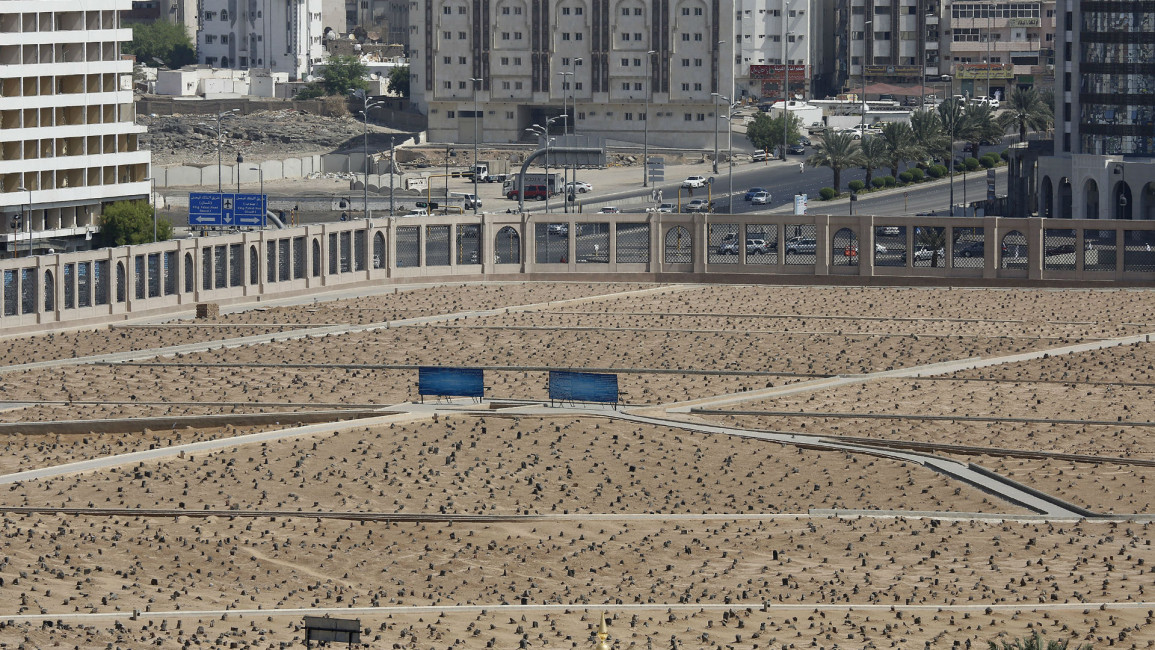Tunisia's former dictator Ben Ali buried among Prophet Muhammad relatives, companions at holy Medina cemetery
Tunisia's former president Zine El Abidine Ben Ali was buried in the Muslim holy city of Medina on Saturday, witnesses said, after he died in exile in Saudi Arabia.
Ben Ali, who died on Thursday in the city of Jeddah, was buried at Jannatul Baqi cemetery - next to the Prophet Mohammed's mosque and a place of great reverence for Muslims where many notable early Muslim figures were laid to rest.
Some of his family were to receive condolences on Sunday in an upmarket suburb of Tunis, according to a small notice published in Tunisia's La Presse newspaper.
Reports emerged last week that Ben Ali had been hospitalised in Jeddah after years of treatment for prostate cancer, with his lawyer confirming his death.
His death came just days after Tunisia went to the polls in the country's second free elections since the longtime autocrat's ouster, following a successful transition to democracy.
He ruled his North African country from 1987 until 2011 and was viewed by some as a bulwark against Islamist extremism, but he faced criticism for muzzling the opposition and his reluctance to embrace democracy.
Consolidating authoritarian rule
Ben Ali promised that his leadership would "open the horizons to a truly democratic and evolved political life", scrapping the title of "president for life" created by Bourguiba and limiting the number of presidential terms to three.
But after a brief period of reforms early on, Tunisia's political evolution stopped.
Most opposition parties were illegal. Opponents were jailed or fled into exile. Amnesty International said authorities infiltrated human rights groups and harassed dissenters.
Reporters Without Borders branded Ben Ali a "press predator" who controlled the media.
Despite promising a move towards democracy, in May 2002 he held a referendum to change the constitution so he could serve a fourth term. A second such change then allowed for an unlimited number of mandates.
Ben Ali consistently won elections by large margins.
In 2009 he was re-elected to a fifth five-year term with 89 percent of the vote. He had warned political opponents they would face legal retaliation if they questioned the vote's legitimacy.
Read more: Ben Ali: Tunisian dictator whose ouster sparked Arab Spring dies in exile
He was fond of telling foreign leaders that Tunisia, a major mass-market tourist destination for Europeans, "does not have any lessons to receive" about human rights.
But rights groups regularly condemned his government, which they said held hundreds of political prisoners.
Corruption was endemic under Ben Ali, whose close circle - especially his wife's family - had an iron grip on the economy.
Eventually, growing frustration over unemployment and high prices snapped.
In late 2010, a young trader in Sidi Bouzid, in the impoverished centre of the country, set fire to himself in protest at humiliation by police.
That sparked protests which rocked Tunisia and triggered a deadly clampdown.
But the protesters won: on January 14, 2011 Ben Ali fled Tunisia for Saudi Arabia where he stayed until his death.
His rapid departure sparked a string of similar uprisings across the region, toppling Egyptian and Libyan strongmen Hosni Mubarak and Muammar Qaddafi.
The ex-leader's wife, Leila Trabesli, who has led a comfortable and discreet life in exile with daughters Nesrine and Halima - along with son Mohamed - has little incentive to return home.
She faces heavy sentences for embezzlement, alongside possession of weapons, drugs and archaeological artefacts.
Ben Ali himself was sentenced several times to life in prison, including for the bloody suppression of protests in the last weeks of his autocratic rule that killed more than 300 people.
He never faced justice.
Follow us on Twitter: @The_NewArab



